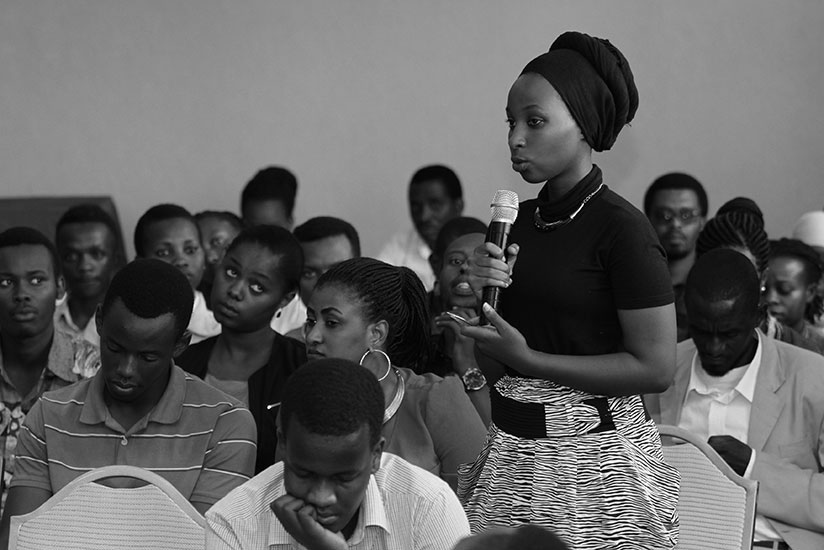By Sonia Tona
Commemorating the 1994 Genocide against the Tutsi is very critical as it helps heal the wounds, experts have said. They were speaking during the annual youth conference on policy and practice of commemoration of the 1994 Genocide n Kigali.The sixth conference, organized by Never Again Rwanda, brought together participants, mainly the youth, from various parts of the country.
It served as a platform for the Rwandan youth and other stakeholders to discuss the national practice of Genocide commemoration and make recommendations that may inform policy and decision making process.
It was also an opportunity for the youth to hear from international experts, civil society organisations, and government on what led to the 1994 Genocide, its effects as well as how they can prevent similar occurrence in the future.
Experts say the youth were manipulated to play an active role in executing the Genocide, and the current lot has a responsibility to build a united nation that is free of genocide ideology and any form of discrimination.
However, they note that the majority of the youth especially those who were born after the Genocide, are not informed enough about Rwandan history, specifically the Genocide history and factors that led to it.
Besides, there is a large number of youths who live with wounded families as victims or perpetrators with a tendency leading to trans-generational trauma among the youth and, if the issue is not dealt with, it could transform into genocide ideology tendencies.
Speaking at the event, Fidèle Ndayisaba, the executive secretary of National Unity and Reconciliation Commission (NURC), hailed Never Again for organizing the conference ahead of today’s 23rd commemoration of the 1994 Genocide against the Tutsi.
Ndayisaba said Rwandans and the youth, in particular, need to know more about Genocide, its causes and impact in order to not only prevent its ideology but also prevent its reoccurrence.
“If you don’t have genocide ideology but you don’t fight it when it manifests, you would be promoting it,” said Ndayisaba .He cited the reconciliation barometer of 2015, which showed that commemoration helps reconcile Rwandans at 90 per cent.“Commemoration is very critical as it helps in healing wounds left as a result of the Genocide, all Rwandans were affected by the Genocide, commemoration helps us remember,” he added.Noting that some people still habour genocide ideology, Ndayisaba urged Rwandans to fight hate so that the youth are not burdened by it but rather are helped to understand the Genocide and draw strengths from that history to ensure the tragedy never happens again.
“Our history gives us more responsibility to fight genocide ideology, we can’t change our bad history but we can overcome it. Rwandans, especially the youth, have the responsibility to shape a better future through hard work. Our progress should inspire us to wake up and strive for a better future of Rwanda,” noted Ndayisaba.
This year’s commemoration will be marked under the theme: “Remember the Genocide against the Tutsi, Fight Genocide Ideology, Build on Our Progress.” Immaculée Mukankubito, a participant, said such conferences help the youth to understand the history of the Genocide, its impact and how to deal with its ideology.She called on adult Rwandans to help the youth understand the country’s history.
“More efforts need to be put in fighting genocide ideology and this should start from the family level. Parents should stop telling their children about Genocide in a bad way, some survivors tell their children about families who killed their relatives while perpetrators only tell their parents about survivors families, this is not promoting unity, all the youth need is to know the country’s history to be able to move forward, ” said Rahamat Umuhoza, 21, a student from Kicukiro.
Source ©The New Times/ editorial@newtimes.co.rw


